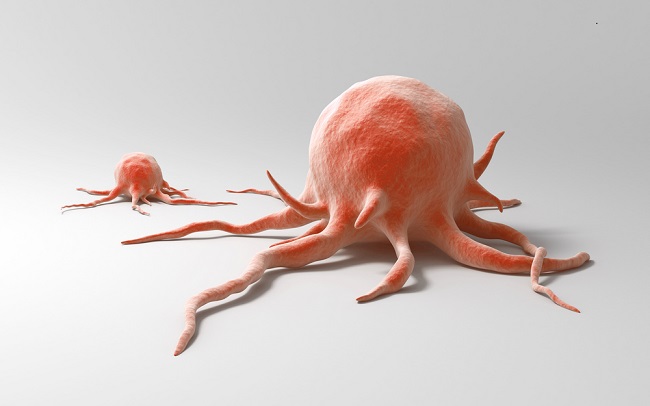Chemotherapy is most effective at killing cells that are rapidly dividing. Unfortunately, chemotherapy does not know the difference between cancer cells and normal cells. The “normal” cells will grow back and be healthy, but in the meantime, side effects occur. The development of cancer therapy to minimalize side effects on normal cells is needed. In addition, nearly 1 in 6 deaths are due to cancer, and recent research has found that the Newcastle disease (ND) virus, which naturally infects poultry, is one of the agents of immune system-based therapy (immunotherapy) and virus-based therapy (virotherapy) that has great potential for cancer therapy in humans. These viruses, known as oncolytic viruses, can kill cancer cells without damaging normal cells.
Oncolytic viruses are anticancer viruses that will selectively infect and damage cancer cells without causing damage to normal cells. Many researchers have investigated the oncolytic effect of the ND virus because it replicates in human cancer cells but does not damage normal cells. This anticancer virus is essential because cancer is a disease with high morbidity and mortality that causes death. According to the latest WHO data, cancer is one of the leading causes of death in the world. In 2015, there were 8.8 million deaths from cancer. Meanwhile, WHO data in Indonesia 2014 stated that 103,100 men and 92,200 women died from cancer. According to WHO, there will be a seven-fold increase in people living with cancer in Indonesia in 2030.
Newcastle disease was first reported by Professor Kraneveld, who worked at the Center for Veterinary Research (IRCVS) in Bogor, West Java in 1926. The following year, there was an outbreak of severe disease in poultry in the New Castle upon Tyne (Newcastle) area. After 1935, the name ND was only used by Doyle, referring to the name of the city in England. Furthermore, ND spread rapidly to various parts of the world. Diseases can also result in restrictions on international trade in poultry products and embargoes in areas or countries experiencing outbreaks. Although the virus is dangerous for poultry, it has great potential as an anticancer breakthrough in humans.
All organs in the human body can develop cancer regardless of age, gender, ethnicity, diet, and environment. Generally, cancer is caused by decreased cell death or increased cell spread. Therefore, the development of cancer therapy that effectively kills damaged cells and it has a minimal negative effect on healthy cells. The effectiveness of the ND virus application is based on high oncolytic activity and the safety of its use.
Recently, a research group in Malaysia used an ND virus isolate from an outbreak that occurred in Malaysia: AF2240 strain. It has received significant attention, despite its high toxicity to cancer cells (cytotoxic). This strain also provides fundamental insight into the ND virus-mediated programmed mechanism (apoptosis) involving the Bax protein (BCL2-associated X) as well as the apoptotic receptor.
Author: Arif Nur Muhammad Ansori, Alexander P. Nugraha Link: http://www.connectjournals.com/toc2.php?abstract=3180800H_2827A.pdf&&bookmark=CJ-033216&&issue_id=Supp-01%20&&yaer= 2020





